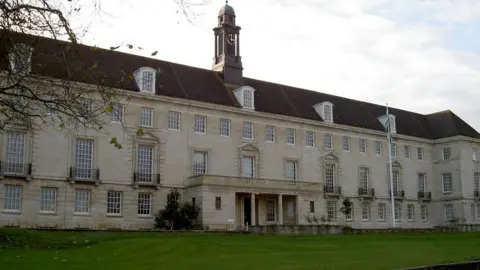'Delight' as court backs council's development handling
 Geograph
GeographThe High Court has ruled in favour of Wiltshire Council's decision making and consultation over its Future Chippenham building programme.
Campaigner Helen Stride brought a Judicial Review against the plans which the applicant said would deliver up to 7,500 homes to the south of the town.
The review focused on claims the public was "unlawfully excluded" from part of a meeting and not consulted properly.
On Friday, the court ruled in favour of the council on all counts.
Speaking afterwards, council leader Richard Clewer said the council was "delighted" with the result.
He added: "The recent ruling shows that the approach of the programme complies with the legislative requirement and should give the people of Chippenham confidence that they will be consulted and provided all information in relation to the programme so that they are fully informed at the appropriate time to make their views known.
"We will continue to progress with work to develop the Future Chippenham programme and prepare for a full public consultation on the proposals later in the year."
Ms Stride - who lives in the area - has campaigned against the plans on the grounds that:
• The public should not have been excluded from part of the Cabinet meeting on 21 July 2021
• The council said that it would consult on the Concept Framework proposals and didn't
• The council failed to consult in a meaningful way on the final, abridged route to the south
On Friday, His Honour Judge Milwyn Jarman QC, sitting as a High Court Judge, ruled in the council's favour on all three counts.
'Public interest'
He said there was "some temporal connection between information relating to a proposed development and the grant of permission for that development" and that its purpose was "to promote public access on the one hand, but to safeguard the financial and business interests of anyone, including the authority, on the other".
He added that it was necessary to balance "public access and private interest".
Given there had to be public scrutiny of the information later, before any planning permission could be granted, the correct balance did not require the information to be disclosed at the early stage when the meeting was held.

Follow BBC West on Facebook, Twitter and Instagram. Send your story ideas to: bristol@bbc.co.uk
